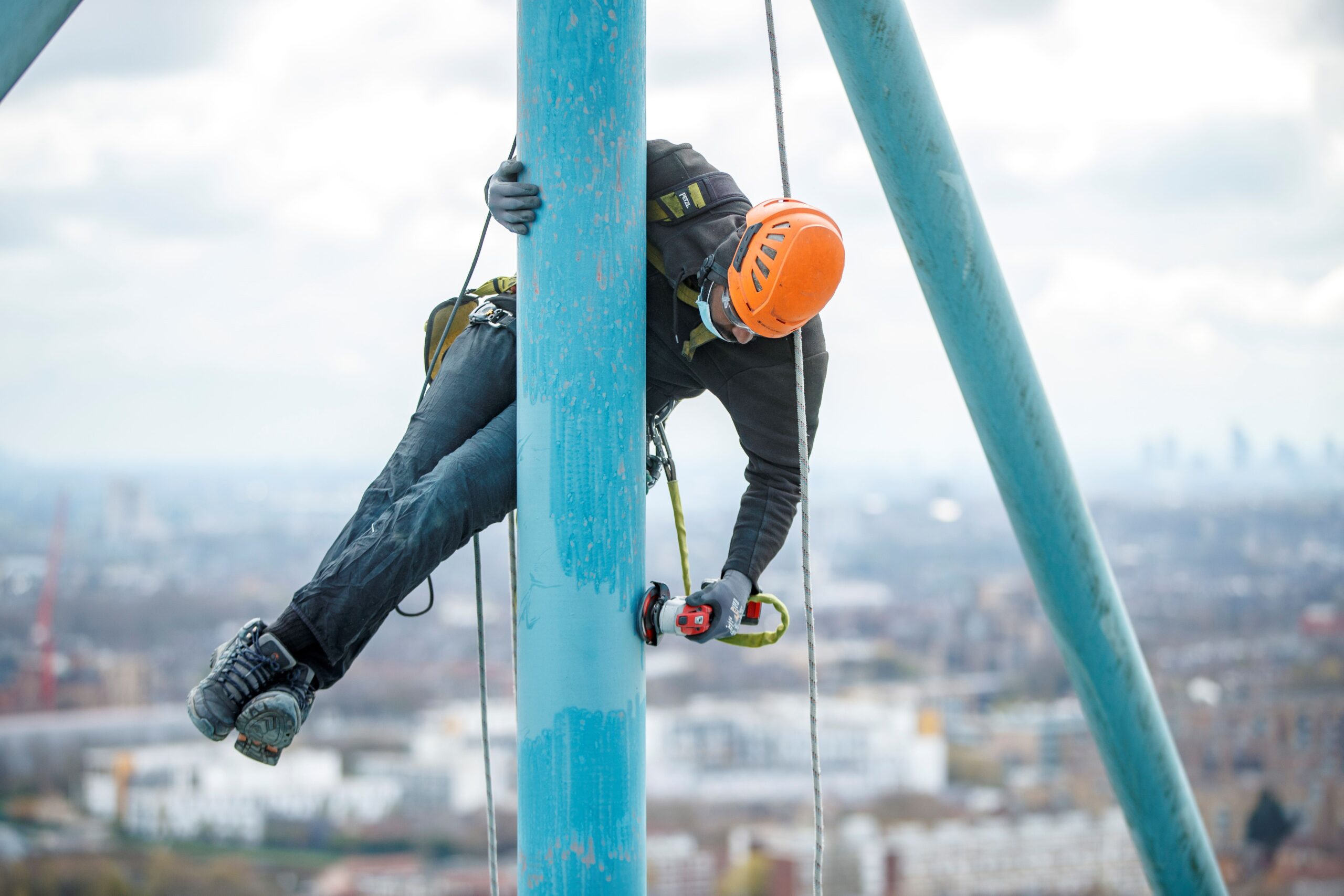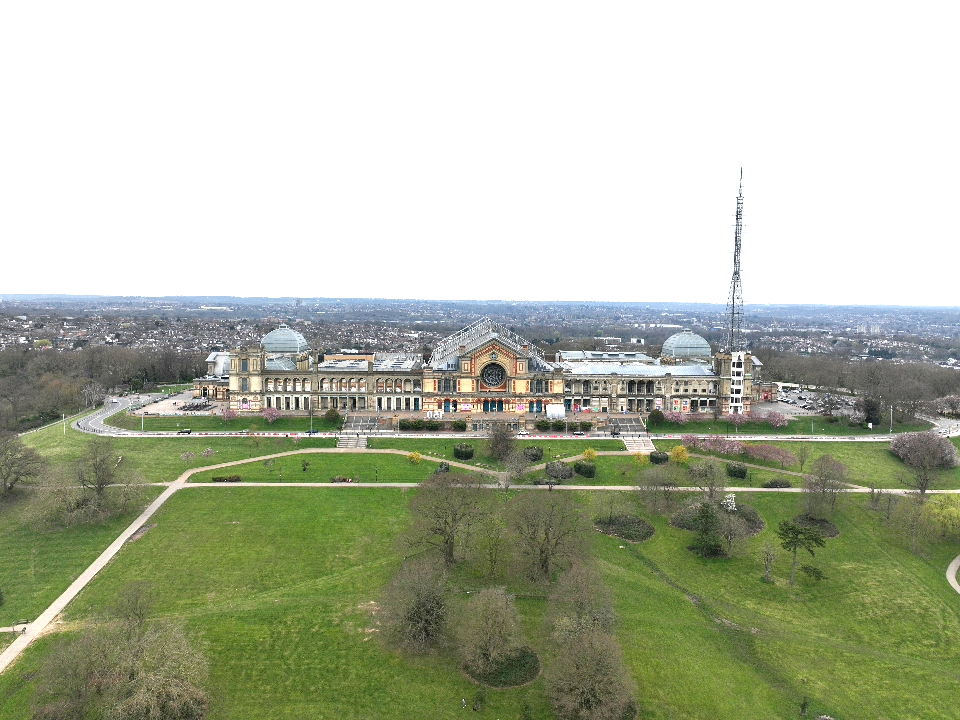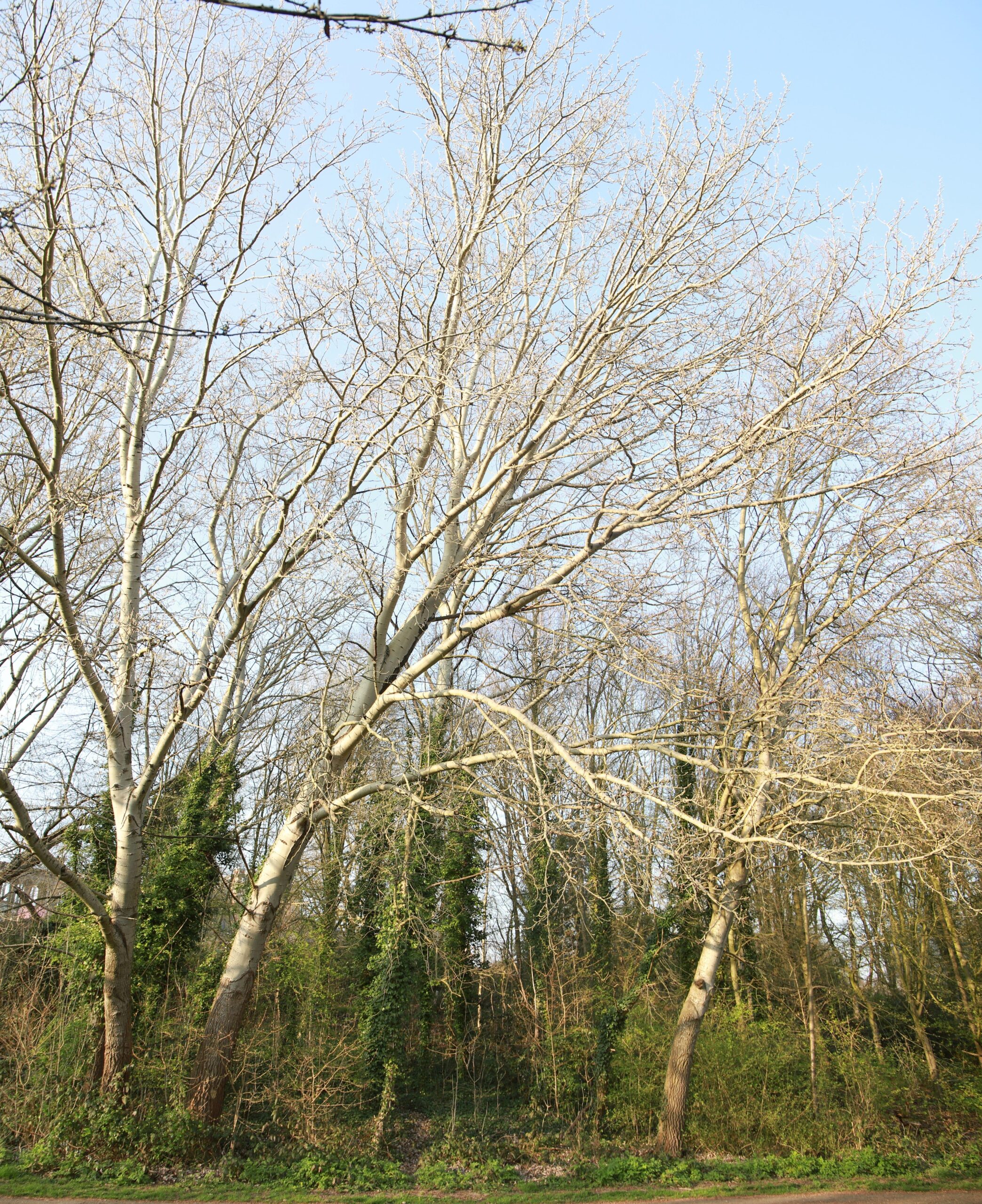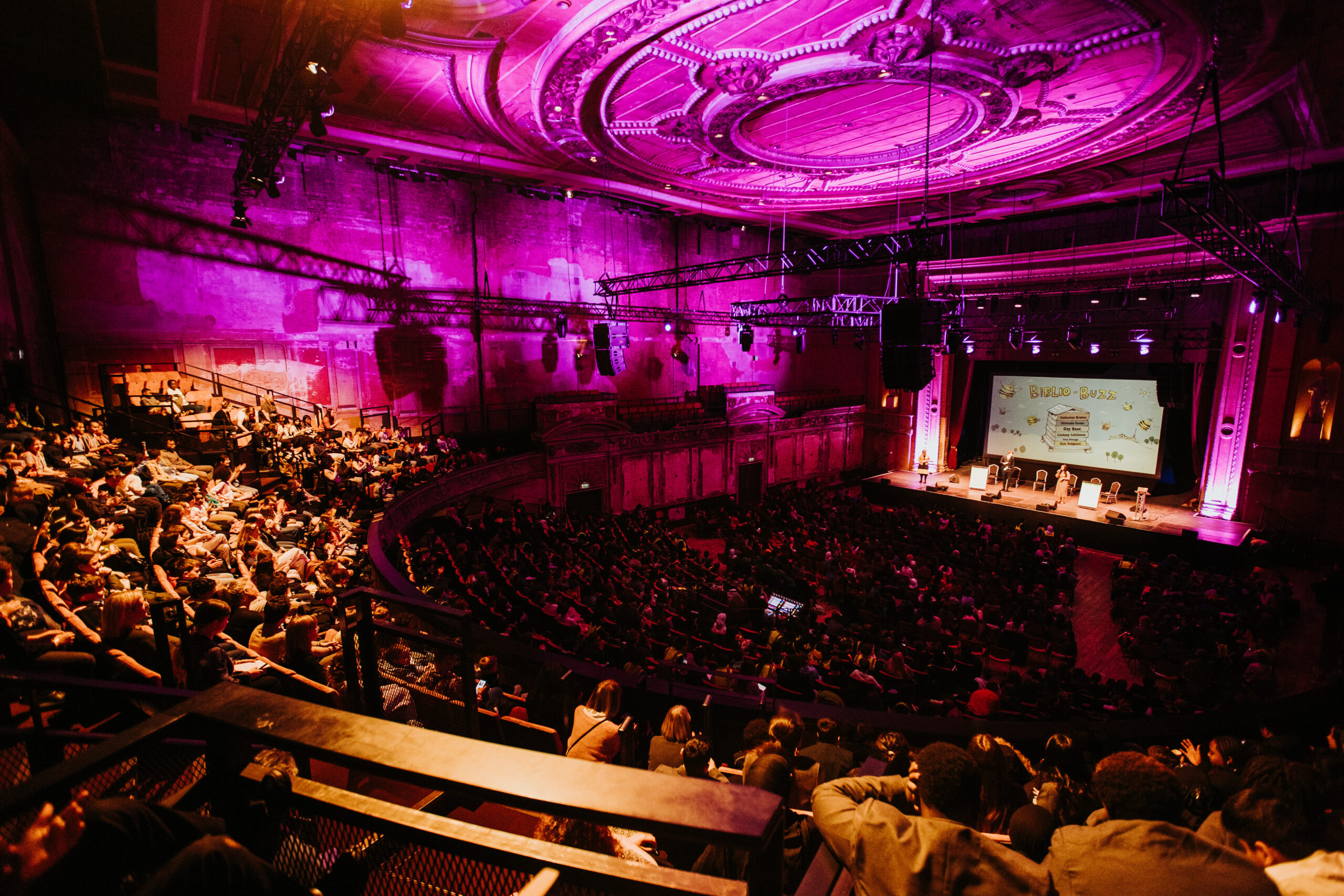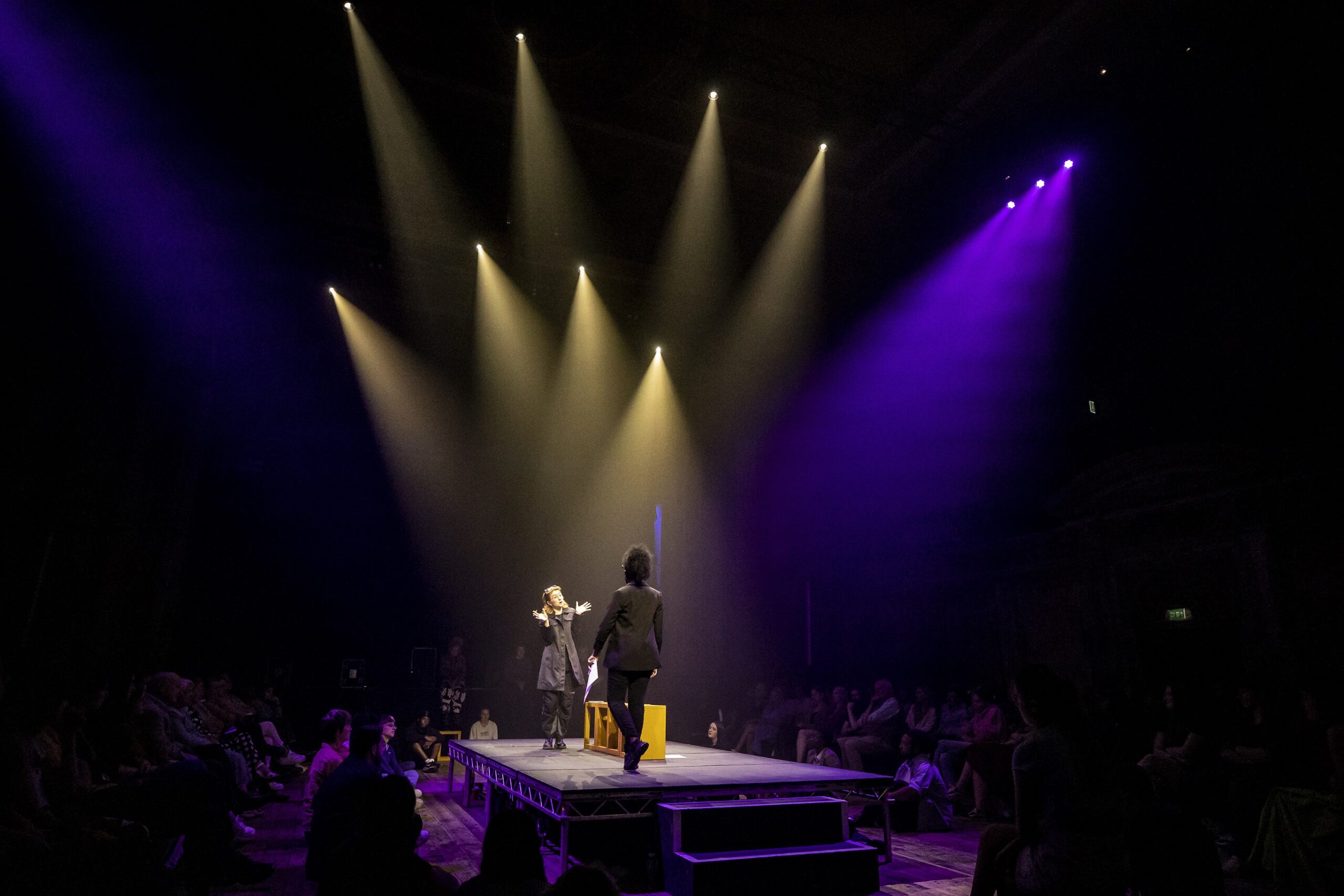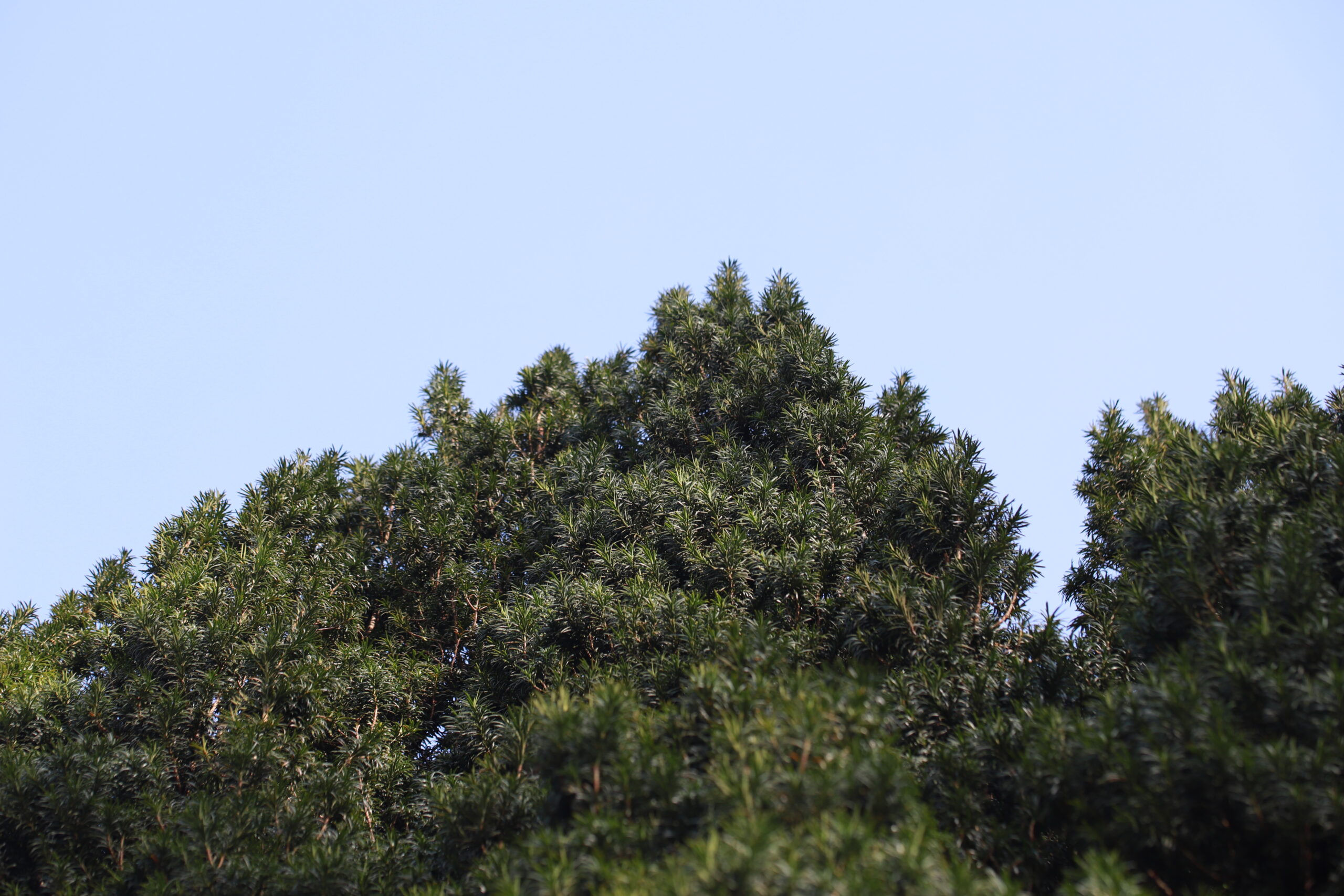The world premiere of the Silent Sherlock programme, restored by the BFI, will take place in our Theatre on 16 October, part of the 68th BFI London Film Festival.
We are delighted to be hosting this year’s Archive Special Presentation which includes a newly restored trio of episodes from the Stoll Picture Company’s epic Sherlock Holmes film series (1921-1923), starring Eille Norwood.
With this in mind, we’ve taken a look back on the history of cinema at Ally Pally…
From the use of a camera obscura outside the East Court to dioramas in the Theatre and panoramas painted on 360° canvases, Alexandra Palace has always been attracted to the latest innovation, as evidenced by the embracement of new theatre stage technology which added visual trickery to live performances.
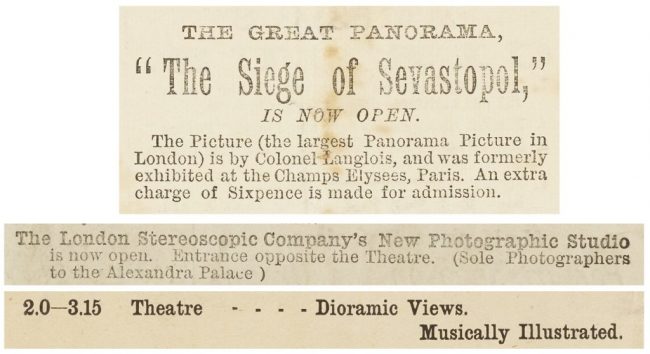 Cinema was quickly adopted by the Palace, less than three years after the Lumiere Brothers first screened their films in Paris.
Cinema was quickly adopted by the Palace, less than three years after the Lumiere Brothers first screened their films in Paris.
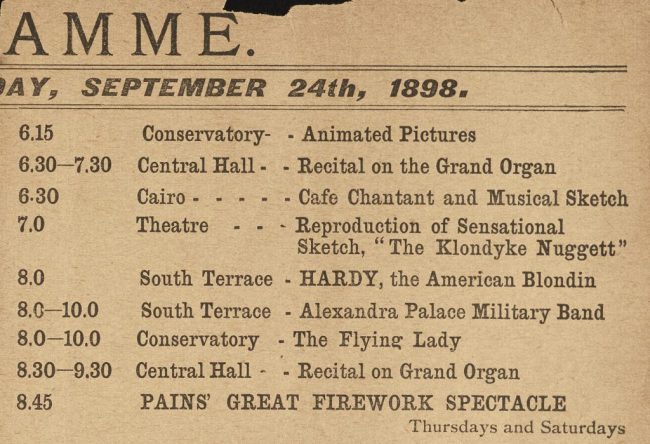
In 1895, new cameras were developed by British inventors after experimenting with Edison’s Kinetoscope. The new camera had the ability to capture multiple-exposures, and was used to create a ghostly effect in the first film adaptation of A Christmas Carol. The first film studio in the UK was built in Muswell Hill and in 1898 shot A Switchback Railway featuring the Palace’s rollercoaster just outside the east entrance.
Very quickly cinema became a popular entertainment and by the turn of the century Alexandra Palace was advertising continuous screenings in the Theatre, proudly boasting the addition of heating.
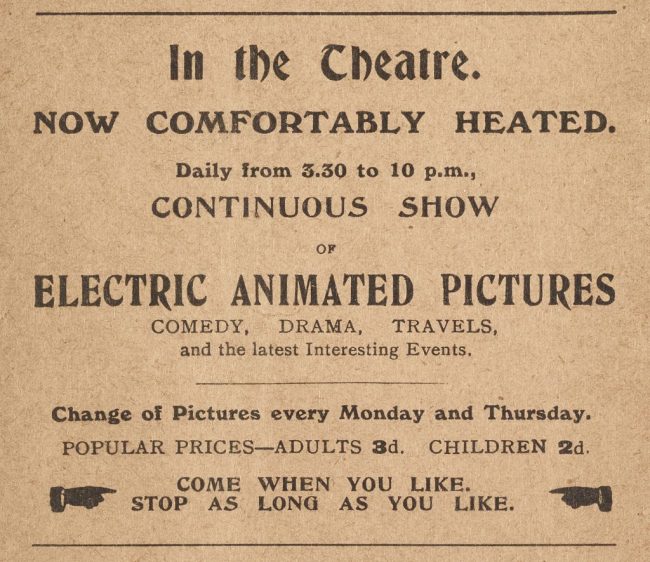
By 1906 film screenings were so popular that a permanent projection box was installed on the balcony as part of a reformatting of the Theatre which removed the upper balcony and added access corridors to the side of the auditorium. The projection box at Alexandra Palace is a rare survivor of the pre-act era and has been maintained through the restoration.
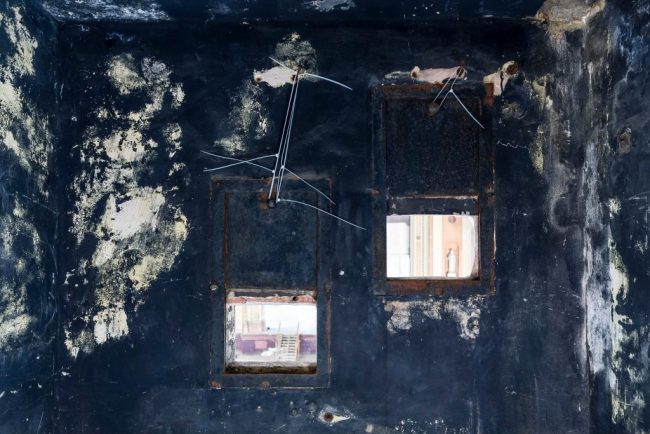
During the First World War the Theatre was used as a chapel but also screened films for the internees. Chaplin films were a popular distraction but digitisation of recently discovered images in the archives has revealed that film footage of conflicts on the continent were screened to the men interned at Alexandra Palace.
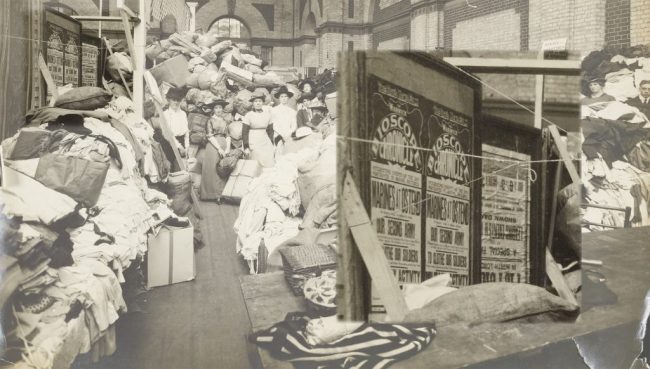
When the Palace reopened in 1922 the Theatre was refurbished for live performances but continued to screen films.
Alexandra Palace is now a popular location site for film production and hosts regular outdoor cinema screenings, including a special screening of Lawrence Of Arabia in collaboration with Secret Cinema where almost 15,000 attendees were transported back to the bustling metropolis of Arabia. During the covid-19 lockdown, Rooftop Film Club returned to the Palace in summer 2020 with their award-winning drive-in, for a series of al-fresco film screenings enjoyed from the comfort of your own car.
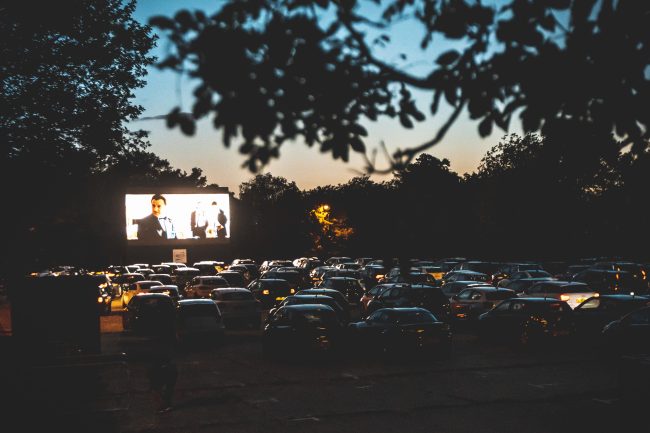
(photo credit: Lloyd Winters)
